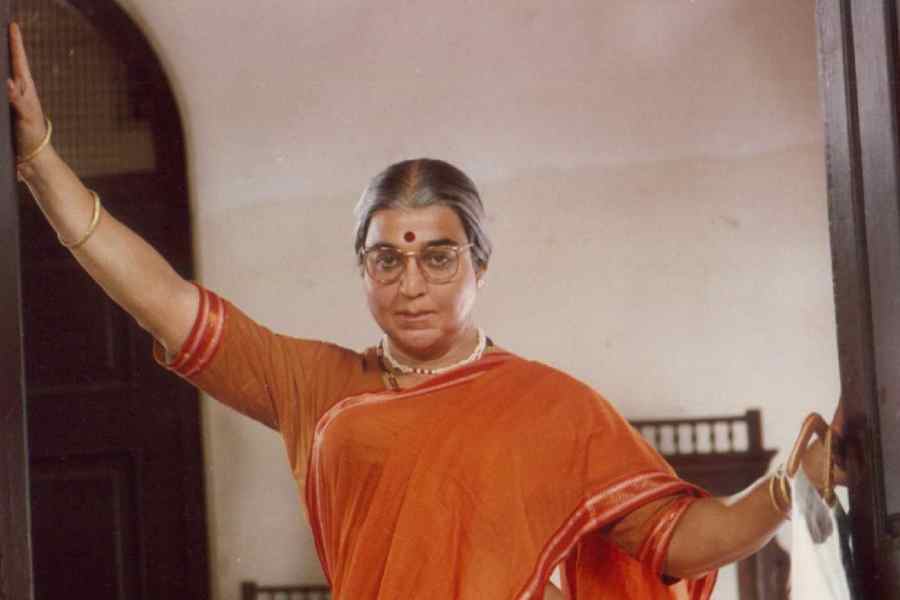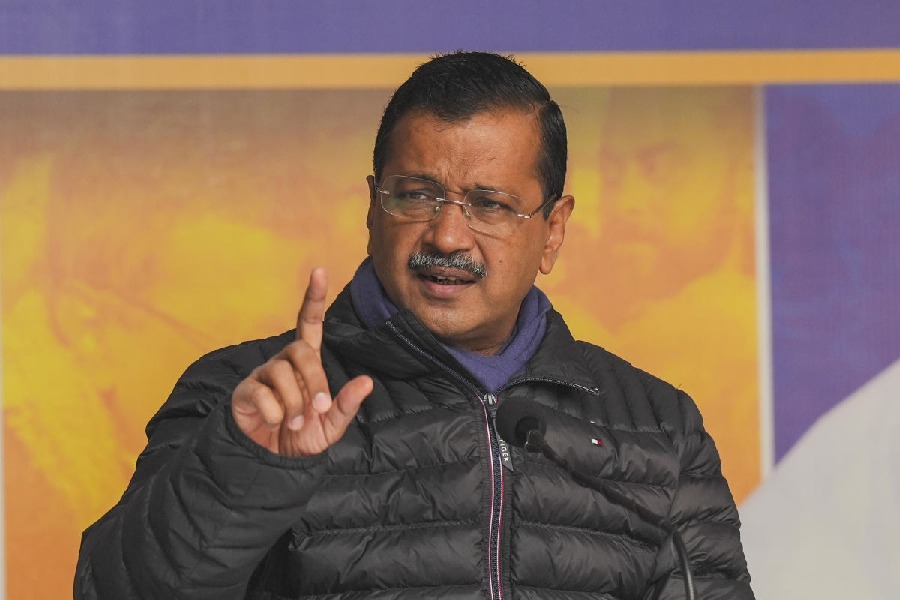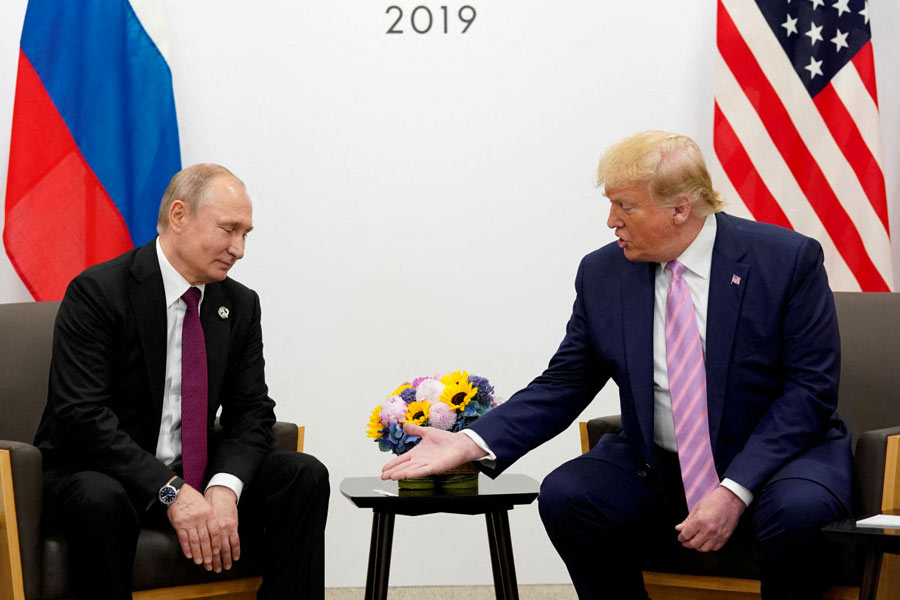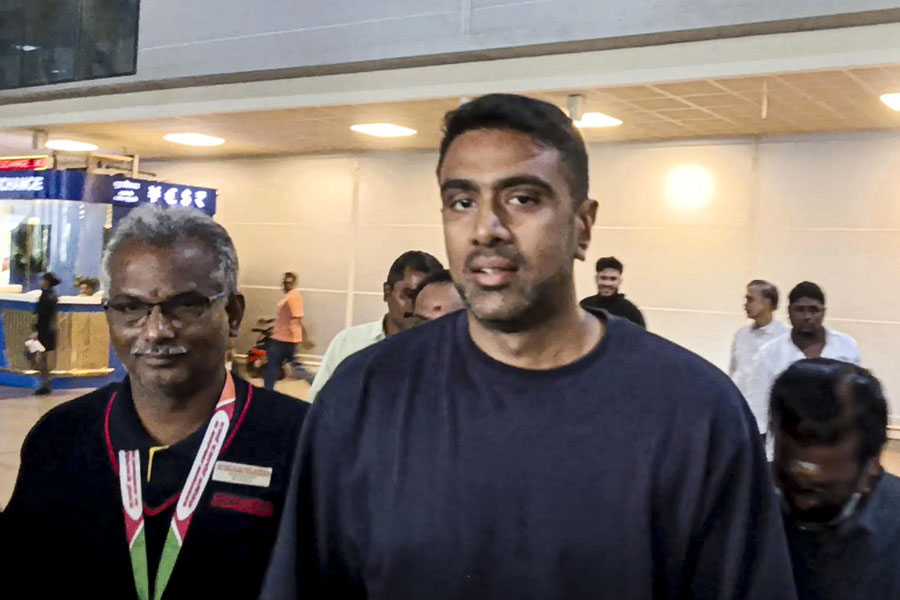Special number
Sir — There’s lots in a number. That which was earlier punishable under Section 420 of the Indian Penal Code — cheating — is still a criminal offence, only under Section 318 of the Bharatiya Nyaya Sanhita. Yet, Section 420 was much more than just a legal provision. Its imprint extended far beyond the realm of law and justice — ‘chaarsau bees’ is used all over the country to describe someone who is cunning or deceitful. Be it politicians accusing their opponents of being chaarsau bees or the famous film by Kamal Haasan titled Chachi 420, this now defunct law is an integral part of many Indian languages. While the IPC and Section 420 may have ceased to exist, chaarsau beesi will certainly live on in popular parlance.
Sneha Sen, Calcutta
Voice muted
Sir — During his debut speech in the Lok Sabha as the leader of the Opposition, Rahul Gandhi was deprived of the opportunity to voice his concern over the discrepancies in the National Eligibility-cum-Entrance Test (Undergraduate) (“Return of Operation Pull-Plug”, June 29). He had barely started speaking on the issue when his microphone was switched off. The silencing of Rahul Gandhi comes at a time when the National Democratic Alliance is being cornered over multiple issues, ranging from the infrastructural failure of the railways to irregularities in several national-level examinations.
The loss of majority in the Lok Sabha elections has not been able to dent the Bharatiya Janata Party’s pride. Its inability to accept accountability for crises, such as the ethnic clashes in Manipur, the Balasore train tragedy and the NEET fiasco, betrays its intention of continuing with its repressive tactics.
Aayman Anwar Ali, Calcutta
Sir — Om Birla and Jagdeep Dhankhar, the presiding officers of the Lok Sabha and the Rajya Sabha, respectively, are running the Houses in a blatantly partial manner. Both are acting in the interest of the ruling dispensation. Their refusal to allow the Opposition to speak on the NEET issue in Parliament is a clear instance of partisanship.
The switching off of Rahul Gandhi’s microphone during his speech was a shameful attempt to gag him. Birla and Dhankhar must rise above partisan politics and do justice to their high offices.
G. David Milton, Maruthancode, Tamil Nadu
Sir — Morning shows the day or so goes the adage. The ruckus in the first three days of the 18th Lok Sabha is portentous of more such disrupted sessions in the future. Despite losing majority and coming to power on the back of a coalition, the BJP seems adamant about running things unilaterally as it did in the previous two terms. This is discernible from the way in which Om Birla and Jagdeep Dhankhar turned down the Opposition’s demand for a discussion on the irregularities in the NEET(UG). The suppression of the Opposition spells doom for democracy.
Jang Bahadur Singh, Jamshedpur
Young wisdom
Sir — The editorial, “Unusual lessons” (June 30), which discusses the significance of Esther Duflo’s new book, Poor Economics for Kids, was illuminating. Duflo’s attempt to help children understand “poverty and its economy” through various stories is laudable. The information that the children gain might make them strive to rise above the poverty line. The book should be published in all Indian languages so that poor children all over the country can benefit from it.
Satish Phadte, Porvorim, Goa
Sir — The achievement of social equilibrium has long been elusive. Economists tend to bank on set theories to understand the chasm between wealth and poverty. In Poor Economics for Kids, the Nobel laureate, Esther Duflo, trains her focus on the impact of poverty on children. This ought to change the prevalent understanding of child poverty and help the government frame appropriate policies.
R. Narayanan, Navi Mumbai
Shun bias
Sir — During a recent event in the city, Mamata Banerjee, the chief minister of West Bengal, advocated for a pure and honest judiciary (“CM calls for ‘pure’ judiciary”, June 30). Banerjee had made unfavourable comments against the judiciary in the aftermath of the Calcutta High Court’s order cancelling the recruitment of thousands of teachers and non-teaching employees in state-run schools. Moreover, her allegation that the then-presiding judge, Abhijit Gangopadhyay, was acting on the behest of the ruling dispensation undermined the judicial institution.
Jahar Saha, Calcutta
Bad listeners
Sir — T.M. Krishna’s column, “Pause to listen” (June 28), underlines the responsibility of parliamentarians to listen to their comrades as well as the members of rival dispensations. Elected representatives do not bother to consider the views of others even on matters that are crucial to the public. The tendency to ignore others’ voices can be traced back to colonial rule when rulers did not address the questions of the citizens. If the voters do not ask questions, political leaders will continue to shirk accountability.
Anit Mitra, Hooghly
Be fair
Sir — The article, “Shade of bias” (July 1), by Aditya Mukherjee rightly highlighted the deep-rooted biases in our society. Indians’ obsession with lighter complexion has led to both women and men trying to lighten their skin. This is exacerbated by celebrities advertising fairness products or undergoing skin-lightening treatments. The media must play a vital role in removing such biases.
Kiran Agarwal, Calcutta










